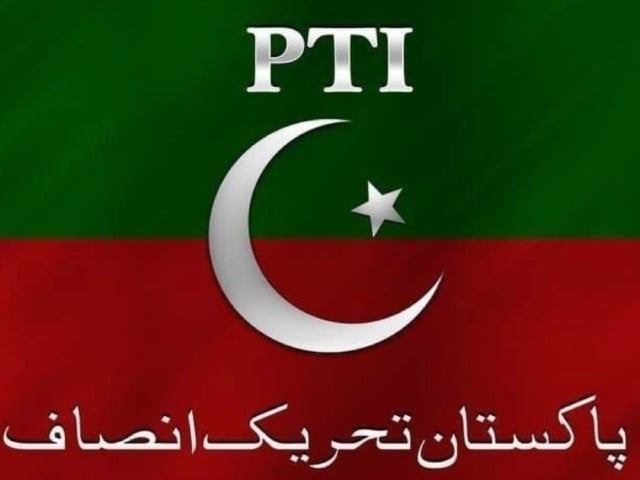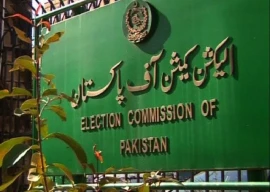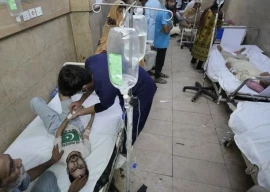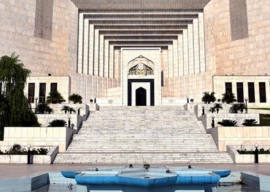
The ruling PML-N approached President Asif Ali Zardari on Friday to brief him on the government’s recent decisions: to impose a ban on the PTI, to try its top leaders for high treason, and to challenge the Supreme Court’s decision on reserved seats.
Sources within the ruling coalition revealed that a PML-N delegation, including Deputy Prime Minister Ishaq Dar, Minister for Law Azam Nazir Tarar, National Assembly Speaker Ayaz Sadiq, and Attorney General for Pakistan Mansoor Awan, met the president. The meeting took place in the private wing of the Presidency, as such discussions are typically kept confidential.
The PML-N delegation met Zardari just a day after PML-N President Nawaz Sharif announced his plan to consult with political parties, especially allies, about the Supreme Court’s July 12 decision to allocate reserved seats in the national and provincial legislatures to the rival PTI.
Following the Supreme Court’s decision to reinstate the PTI, the PML-N-led ruling coalition resolved to refer the matter back to the top court, seeking a ban on PTI and initiating Article 6 proceedings against former prime minister Imran Khan, former president Dr Arif Alvi, and former deputy speaker Qasim Suri for dissolving the National Assembly in April 2022.
In a press conference on July 15, Federal Minister for Information Ataullah Tarar announced that the ruling alliance would also challenge the Supreme Court’s July 12 ruling by filing a review petition.
He further disclosed plans to take strict legal action against individuals campaigning from abroad and lobbyists involved in conspiracies targeting Pakistan.
Tarar also stated that the government would address those who allegedly sabotaged an IMF deal, pushed the country towards default, and used diplomatic cables for personal and political interests.
Following these announcements, the PPP and other allies attempted to distance themselves from the decisions but did not explicitly state they would withdraw their support.
The PPP, a key ally of the government, initially indicated it would consult before deciding its stance but later confirmed its support for the federal cabinet’s decisions.
Critics argue that the PPP’s fluctuating stance reflects its desire to maintain a distinct identity and avoid being held responsible for decisions made by the ruling PML-N.
They point out that the “fixed fight” between the two parties during the budget period illustrates this dynamic.
The alliance between the PML-N and the PPP was based on an agreement to share constitutional offices and support each other’s positions.
The PPP retained the presidency, Senate chairmanship, and deputy speaker of the National Assembly, while the PML-N secured the prime ministership, the speakership of the National Assembly, and the deputy chairmanship of the Senate.
They also divided governorships of the provinces, with the PPP keeping Punjab and Khyber Pakhtunkhwa, and the PML-N holding Sindh and Balochistan. The PML-N had permitted MQM-P to continue with the governorship in Sindh as part of this arrangement.
Requests for comments from the delegation members went unanswered.


















COMMENTS
Comments are moderated and generally will be posted if they are on-topic and not abusive.
For more information, please see our Comments FAQ